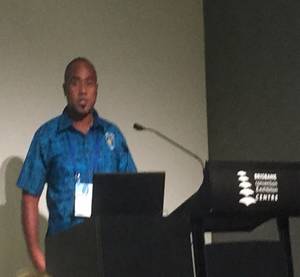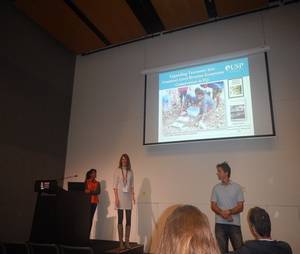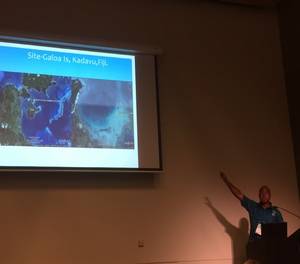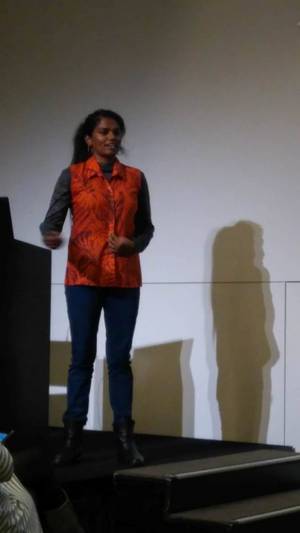Related News

Two staff from the Institute of Applied Sciences (IAS) recently participated at the Society for Biology of Oceania (SCBO) conference hosted by the University of Queensland, Brisbane from 4 -8 July 2016. Ms Bindiya Rashni, a Freshwater Macroinvertebrate Ecologist and Mr Albert Whippy, an IAS Graduate Assistant presented on their research thesis findings and its implications on Fiji’s resource conservation systems.
Ms Rashni whose thesis focussed on the Fijian riverine ecosystem conservation highlighted the catchment transformations threatening the integrity of rivers and associated ecosystem services and the need to educate and empower user communities. An output of her thesis, ‘Traffic Light Bioindicator Guide’ (TLBG) to assist in community based riverine health assessment in Fiji has been included in the RiverCare toolkit published by Live&Learn Environmental Education Fiji. The guide is now used to establish and empower young river scientists across local indigenous communities. Three successful riverine ecosystem outreach projects by Live&Learn and NatureFiji will be used as models to extend riverine ecosystem conservation across user communities in Fiji. It is envisaged that a similar approach will be applied to oceanic countries to enhance sustainable resource management and livelihoods.

Ms Bindiya Rashni addresses audience questions

Mr. Albert Whippy presented on a chapter of his Masters of Science thesis research ‘Comparison of farming and drying methods for the red seaweed Kappaphycus alvarezii ‘tambalang’ in Ravitaki District and Galoa, Kadavu, Fiji Islands’. His research aims to determine the best method for farming and drying the red seaweed, Kappaphycus alvarezii. Emphasising on the importance of seaweed farming to sustainable livelihood development in Kadavu, he stated that the method of farming and drying employed plays a vital role in terms of the return that it could bring to the community. By identifying the best method of farming and drying, the information would be used by the Fisheries Department and other NGOs to support the idea of introducing seaweed farming project as a sustainable livelihood development initiative and assist in future research.

Both Ms Rashni and Mr Whippy mentioned that SCBO was an enriching experience in terms of knowledge and experience sharing with other participants across Oceania and other parts of the world.The sentiment was echoed by the Acting Director, IAS Dr Johann Poinapen who also added that IAS will continue take the lead role in the application of scientific research to improve the livelihoods of the people in the region.